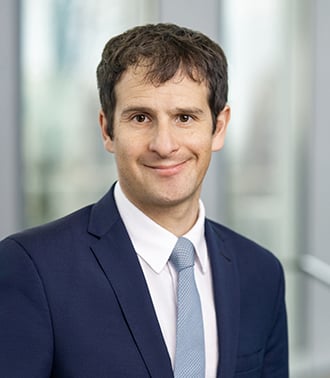“We’re Not the Only Game in Town, and That’s a Good Thing”: US Enforcement Officials Discuss Intensified Anti-Corruption Drive in Latin America
David Fuhr, a senior enforcement official in the Department of Justice’s FCPA unit, and Joshua DeLay, a section chief in the Financial Crimes Unit for Homeland Security Investigations, discussed trends and what’s to come in FCPA enforcement in Latin America at the ACI FCPA Conference in Washington, DC.
A few takeaways:
- In June 2021, the Biden Administration designated anti-corruption efforts as a core national security priority, calling for a multi-pronged approach that includes coordination within the executive branch as well as with other countries. Shortly thereafter, DOJ announced a series of initiatives to fight corruption in Latin America specifically, including a multiagency law enforcement task force.
- Fuhr noted that the level, depth, and number of countries cooperating with DOJ investigations in the region has increased substantially in recent years. Coordination with US enforcement authorities is now systematic and institutionalized in many Latin American countries and has played a critical role in identifying and prosecuting international corruption.
- DOJ enforcement actions are often prompted by investigations undertaken by local authorities in Latin American countries, including some that have discovered “staggering” corruption. “We’re not the only game in town—and that’s a good thing,” Fuhr observed.
- Failures in corporate risk assessment are a prominent theme in FCPA enforcement actions within the region. As Fuhr noted, “If you don’t know how to assess your risk it is very difficult to mitigate your risk.”
- Another common theme: it is “rare” that an FCPA case in the region does not relate to conduct of third parties, such as agents, distributors, and others acting on a company’s behalf. In Fuhr and DeLay’s view, it’s paramount to identify and manage touchpoints with governments and government-owned companies, particularly where third parties interact with government officials on a company’s behalf.
- Even in countries that offer comparatively less cooperation with the US government, US enforcement agencies have been able to gather evidence through global asset and financial tracing. DeLay gave an example of a country that is less cooperative but also does not have a stable banking system. Because of this, individuals in the country often maintain assets elsewhere, thereby enabling DOJ to trace them within the United States and by coordinating with other countries. Individuals and companies with ties to, or money flows through, the United States are particularly susceptible to enforcement efforts.
- Given all of these factors, Fuhr predicted that enforcement of US laws with respect to corruption in Latin America will intensify. Fuhr noted that the energy and extractives industries remain a particular focus given their involvement in past cases in the region.
For help with how to conduct risk assessments, manage third parties, and stay out of trouble when doing business in Latin America, don’t hesitate to reach out to a trusted Arnold & Porter resource.
© Arnold & Porter Kaye Scholer LLP 2021 All Rights Reserved. This blog post is intended to be a general summary of the law and does not constitute legal advice. You should consult with counsel to determine applicable legal requirements in a specific fact situation.


